Cavoodle Dog Breed Guide
Wondering if a Cavoodle is right for your family? Learn about the Cavoodle’s personality, health and care requirements from Greencross Vets today. Topics Covered:

 Greencross Vets
Greencross Vets
Wondering if a Cavoodle is right for your family? Learn about the Cavoodle’s personality, health and care requirements from Greencross Vets today. Topics Covered:
Cavoodles are a cross between a Poodle (often toy or miniature) and a Cavalier King Charles Spaniel. Cavoodles are one of the oldest Poodle crossbreeds and are believed to have been first bred in the 1950s. Although their exact origin is unknown, experts agree that it is likely the first Cavoodles resulted from an accidental breeding between a Poodle and a Cavalier King Charles Spaniel. The adorable resulting puppy caught the attention of many, who continued this crossbreeding to make Cavoodles the popular pets we know today.
By the 1990s the first ever officially recorded Cavoodle litter was born in Australia, leading many to argue that Cavoodles are an Australian designer breed – despite earlier accidental litters across the US.
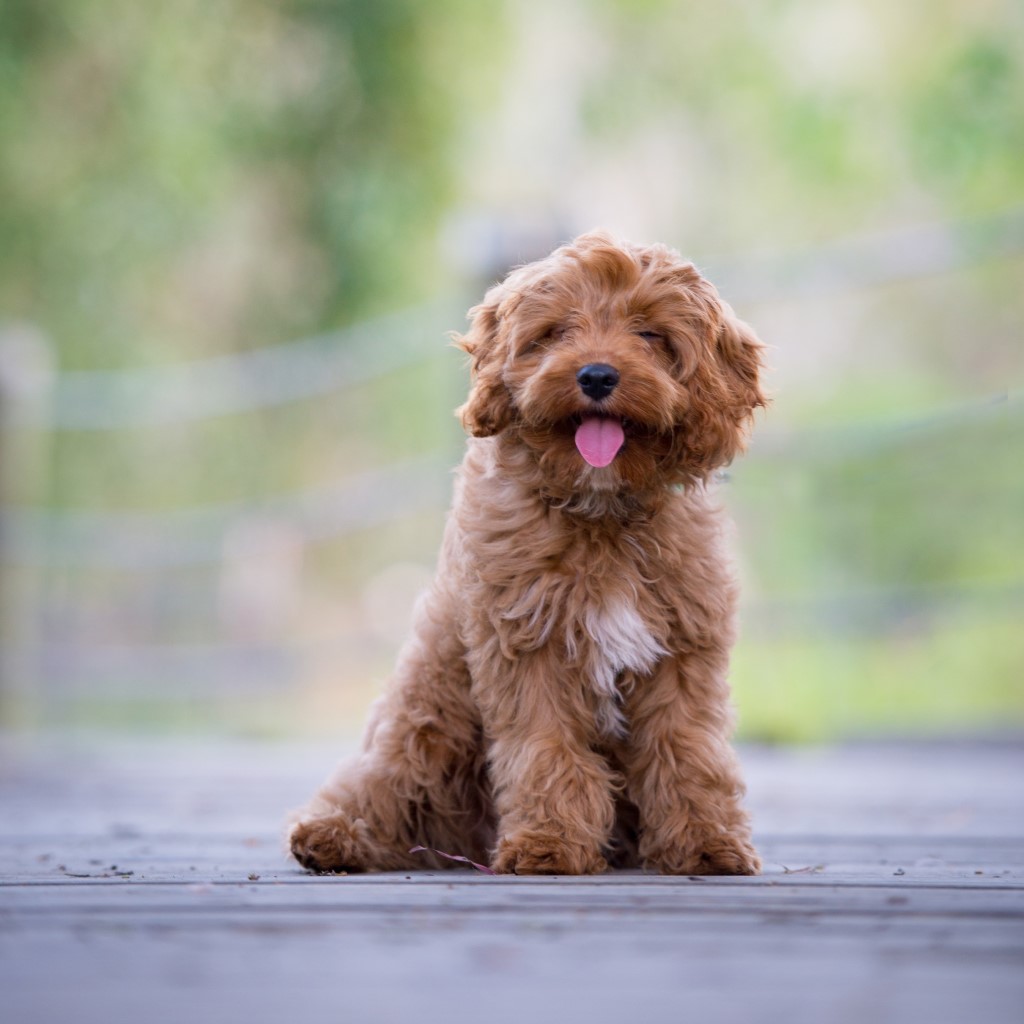
Cavoodles make fantastic family pets due to their gentle, loyal, even-tempered, and people-orientated nature. They generally get along well with the elderly, children, and other pets, making them a great family companion. Regardless of the breed of dog, we strongly recommend supervising all interactions with children and pets. Like most dogs they may become jealous if they see their owner devoting a lot of attention to another pet, however this can be avoided by sharing the attention evenly between both pets.
Cavoodles are very lively and affectionate little dogs. They can be easy trained using positive reinforcement, repetition, routine, and, as with all things pet-related, patience! It is also important to provide plenty of stimulation to prevent boredom in this breed.
Cavoodles crave constant love and attention, they enjoy being surrounded by plenty of people or animals so they never feel lonely. This need for constant companionship may predispose them to a condition called separation anxiety.
Cavoodles are also very curious critters that are acutely aware of their surroundings. They enjoy playing the role of an adept watch dog and may be prone to barking at strangers and other perceived threats. Provided they are properly socialised, they will let their guard down once strangers are assessed to be friendly.
While we tend to generalise about the nature of Cavoodles, they are a mixture of two very different breeds, and it can be difficult to predict their personality. Every Cavoodle is unique and will have their own personality traits! If your puppy takes more after their Poodle side, you may find they can develop a bit of an independent streak. Alternatively, they may take after their more relaxed Cavalier King Charles Spaniel genes.
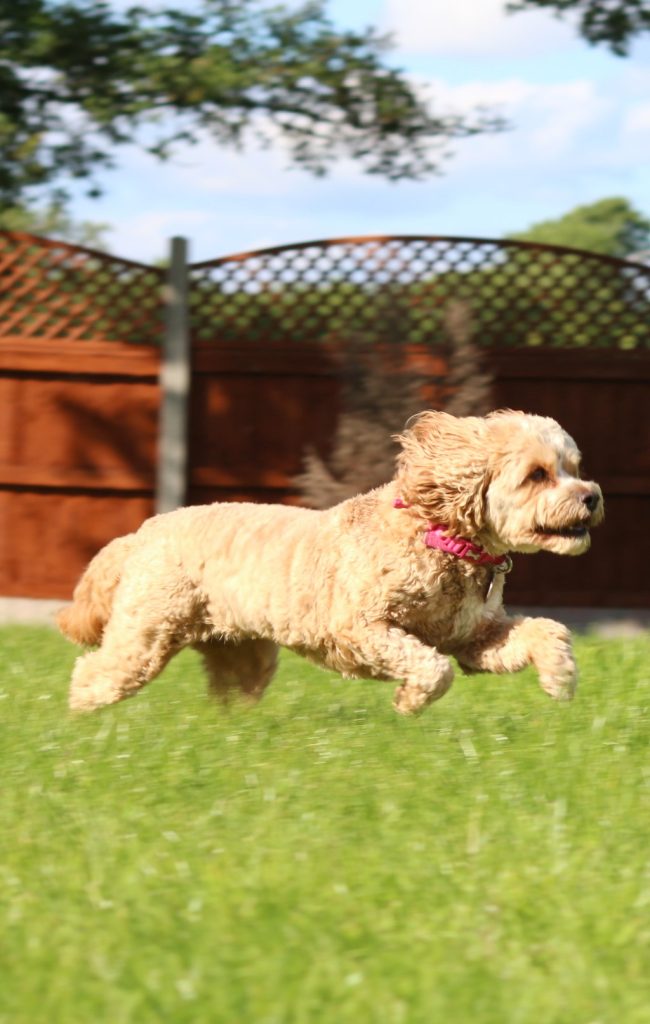
Cavoodles vary in size depending on their breeding. They are a small dog, generally weighing between 5kg and 12kg as adults and varying in shoulder height from 28-35 centimetres. Cavoodles will generally stop growing between 8 and 10 months of age.
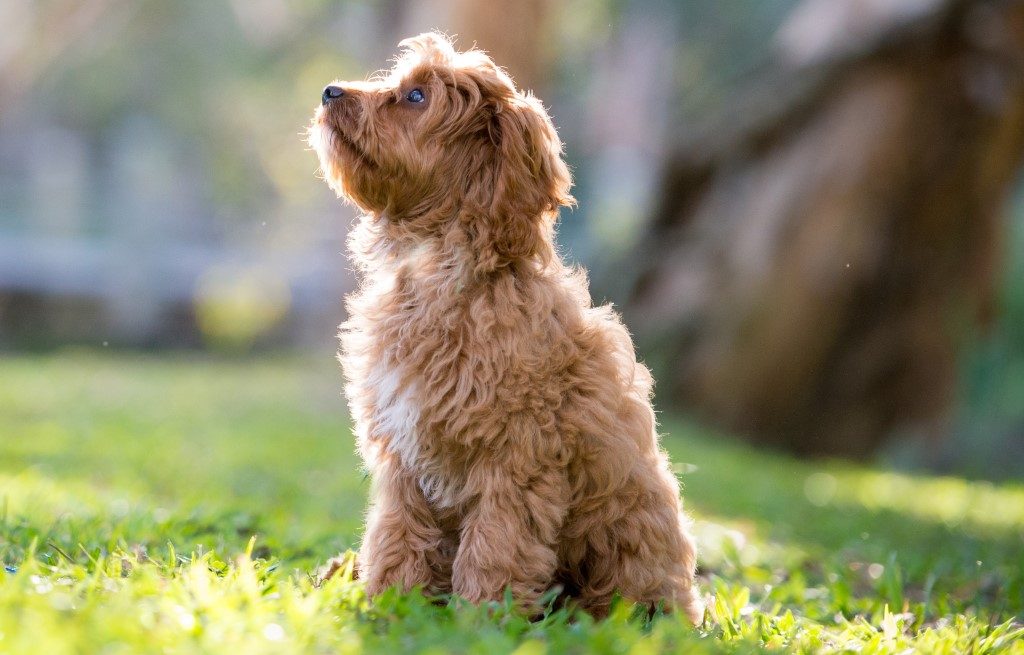
Cavoodles are a crossed designer breed which means they can develop any of the breed related health conditions of the parents. There are a number of diseases to look out for in Cavoodles including:
Syringomyelia: a painful condition where cavities of fluid form in the spinal cord resulting from a malformation of the occipital bone in the skull. The skull cavity may also be too small for the brain. Should your pet demonstrate any neck pain a visit to your veterinarian is essential.
Mitral valve disease is a progressive heart condition inherited on the Cavalier King Charles Spaniel side of the family and very common with Poodles. Clinical signs often develop at around 10 years of age, but may be a lot earlier, where breathing difficulties and exercise intolerance may be observed. Pets with this condition have a high probability of succumbing from heart failure.
Eye diseases including cataracts or progressive retinal atrophy: there are several disease processes that may lead to canine cataracts. Often the first indication your dog may be developing a cataract is cloudiness of the lens, maturing into a non-transparent white disk that causes blindness. This can be assessed and potentially removed surgically by a veterinary specialist ophthalmologist.
Hip dysplasia: a joint condition where the head of the femur does not fit into the socket hip joint correctly. With time osteoarthritis often develops causing pain and lameness.
Luxating patellas: a condition where the kneecap has tendency to dislocate either medially or laterally damaging cartilage in the knee joint. Much like hip dysplasia, this condition may lead to osteoarthritis, pain, and lameness. For both conditions, mild cases can be treated with anti-inflammatory medications while serious cases may require surgery.
Epilepsy: Cavoodles are prone to idiopathic epilepsy, meaning they can experience seizures with no known cause. They often develop between 1 to 5 years of age.
Dental problems: Many poodle breeds suffer from dental mal-alignment, where the teeth grow in an abnormal position, or the top or bottom jaw is too narrow or short. Many puppies require extraction of their baby teeth to try to improve the angle of growth of the adult teeth.
To try to avoid getting a puppy with a multitude of inherited health problems, it is advisable to have the parents screened for any of the diseases mentioned above. Genetic and diagnostic tests are available for both Poodles and Cavalier King Charles Spaniels for the most common reported inheritable conditions. Speak to your local vet team for more information about how you can keep your Cavoodle healthy.
Cavoodles can adapt to almost any environment and will happily thrive in a house, apartment, condo, city, or country setting. Since they are so directly related to the Cavalier Kings Charles Spaniel who are known lap dogs, many Cavoodles will happily spend a lot of their day on the couch. Though all dogs will have individual needs, generally Cavoodles require a moderate amount of daily exercise of between 30 to 60 minutes. This can include daily walks, free play at a dog park, and mental stimulation. Cavoodles with inadequate exercise and environmental enrichment are more likely to take up destructive behaviours such as chewing on furniture. If you are concerned about your pet’s behaviour, contact your vet for training tips and further advice.
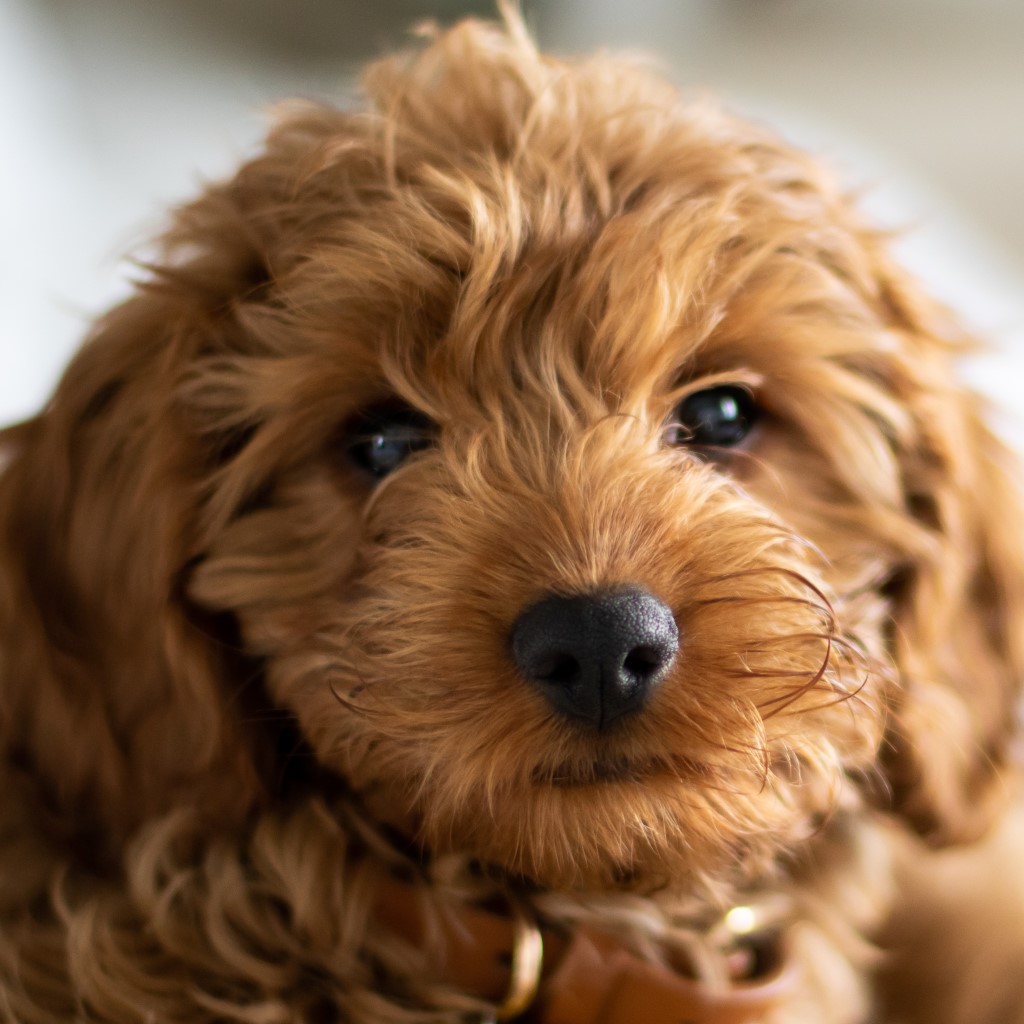
Cavoodles are a smaller breed and generally require less food, which means it is important to stick to a complete and balanced premium dry food blend. As Cavoodles will tend to eat small quantities at a time they will need this food to provide all necessary nutrients. There are many brands of dog food made especially for small breed adult dogs that include smaller kibble sizes. They also need to contain balanced levels of protein, fat and carbohydrate plus vitamins, minerals and antioxidants for health and wellbeing. It is always recommended that you make an appointment with a vet to discuss an appropriate well-balanced diet for your pet.
While they are still a puppy it is advisable to feed them life-stage appropriate small puppy food. Puppies will require a diet higher in calcium and as they grow older, they will require a diet richer in proteins. The Petbarn Food Finder is a great tool to discover which puppy food options are available. Explore the options available and discuss with your local vet team the best nutrition choice for your pup.
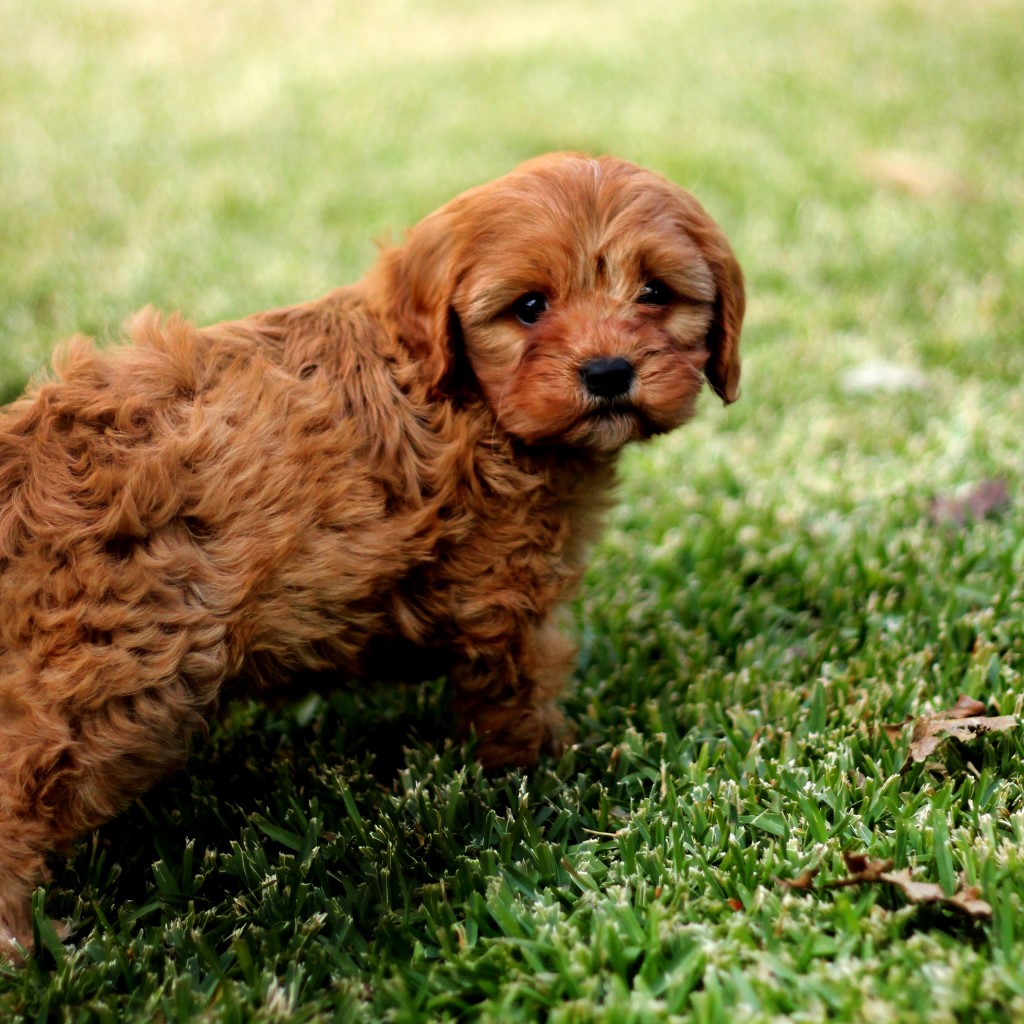
Cavoodles are a cross breed, which means they come in a wide range of different possible colours and coat varieties. Cavoodles come in any colour the parents exhibit or carry – King Charles Cavalier Spaniels have four separate colours including Blenheim, ruby, tricolour, and black and tan. Poodles are also very diverse, and can be seen in apricot, black, blue, brown, caramel, cream, chocolate, red, silver, and white. Cavoodles can also have markings which are most frequently solid in colour, though some can be phantom, parti or tuxedo pattern. Cavoodles can also be prone to changing colour as they age.
Cavoodles have luxurious coats that will usually be either feathered or curly and will be low to non-shedding making them hypoallergenic and a great option for owners who have allergies.
Cavoodle grooming is considered to be high maintenance, as they need to be brushed on a weekly basis, sooner as needed, and professionally groomed every 6 weeks. Cavoodles’ coat care is a lifelong commitment, as while cute and fluffy, it can tangle easily causing painful mats, which can lead to the groomer having to shave off all fur.
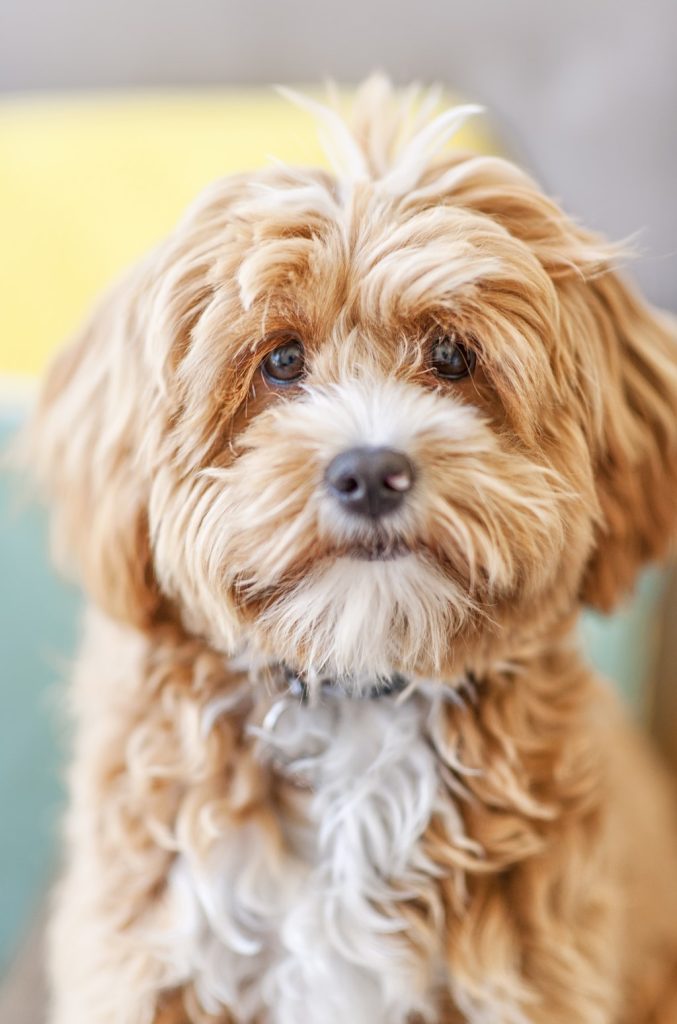
Cavoodles are a cross breed of a Poodle (often toy or miniature) and a Cavalier King Charles Spaniel.
It is important to provide a nutritional complete and balanced blend for your Cavoodle that includes proteins, carbohydrates and various minerals. Though Cavoodles are not normally fussy eaters, make sure you choose a premium dog food that considers these dietary elements.
Cavoodles will generally stop growing between 8 to 10 months of age.
Cavoodles are considered a small sized breed and can grow up to 25-38 centimetres in height, and 5-12kgs in weight.
Due to being a mixed breed, Cavoodles have great genetic diversity that contributes to an average lifespan of between 10 to 14 years.
Though all dogs will have individual needs, generally Cavoodles require a moderate amount of daily exercise of between 30 to 60 minutes. This can include daily walks, free play at a dog park, and mental stimulation.
Cavoodles are a generally smart breed which means they respond well to training. As with most dog breeds, some know-how and a little persistence will go a long way.
Cavoodle grooming is considered to be high maintenance, as they need to be brushed on a weekly basis, or sooner and clipped every 6 weeks. In terms of their personality / daily requirements, they are a relatively attention-demanding breed, but are clever, and will learn quickly with proper instruction.
Due to their Poodle heritage Cavoodles do not shed a lot, but it’s a good idea to keep up with brushing and grooming nonetheless.
Cavoodles make a good family pet due to their intelligent, gentle, and people-oriented nature. They generally get along well with children and other pets, making them a great family companion.
At Greencross Vets, nothing is more important than the health and wellbeing of your four-legged friend. If you have any more questions, please reach out to your local Greencross Vets. You can find your local Greencross Vets here .
We are more than happy to help! Or if you’re looking to adopt, find your new best friend with Petbarn adoptions.